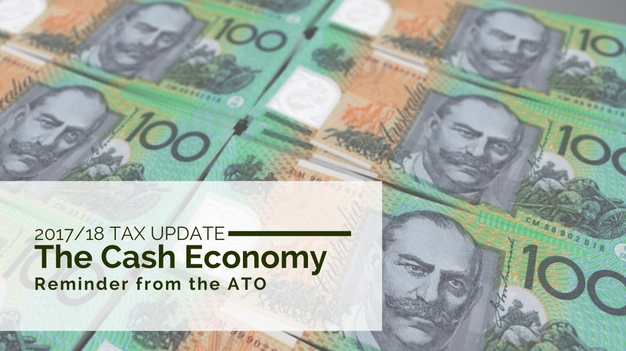The ATO is reminding taxpayers that it uses a range of tools to identify and take action against people and businesses that may not be correctly meeting their obligations.
Through ‘data matching’, it can identify businesses that do not have electronic payment facilities. These businesses often advertise as ‘cash only’ or mainly deal in cash transactions. When businesses do this, they are more likely to make mistakes or do not keep thorough records.
The ATO’s ability to match and use data is very sophisticated. It collects information from a number of sources (including banks, other government agencies and industry suppliers), and also obtains information about purchases of major items, such as cars and real property, which it then compares with information against income and expenditure reported by businesses and individuals to the ATO.
Here are just a couple of examples of recent investigations which have been undertaken by the ATO.
Example 1: Unrealistic personal income leads to unreported millions
The income reported on their personal income tax returns indicated that a couple operating a property development company didn’t seem to have sufficient income to cover their living expenses. The ATO found their company had failed to report millions of dollars from the sale of properties over a number of years.
The couple were required to pay the correct amount of tax (of more than $4.5 million) based on their income and all their related companies, and also incurred a number of penalties.
Example 2: Failing to report online sales
A Nowra court convicted the owner of a computer sales and repair business on eight charges of understating the business’s GST and income tax liabilities.
The ATO had investigated discrepancies between income reported by the business and amounts deposited in the business owner’s bank accounts, finding that the business had failed to report income from online sales.
The business owner was ordered to pay over $36,000 in unreported tax and more than $18,400 in penalties, and also fined $4,000 (and now has a criminal conviction).
Get it in writing and get a receipt
As a consumer, the ATO also notes that requesting a written contract or tax invoice and getting a receipt for payment may assist in protecting your rights and obligations relating to insurance, warranties, consumer rights and government regulations.
Consumers who support the cash economy, by paying cash and not getting a receipt, risk having no evidence to claim a refund if the goods or services purchased are faulty, or prove who was responsible in case of poor work quality. So do make sure you’re getting it in writing and getting a receipt!
Confused about how to ensure you are properly reporting cash income? As always, we are here to help. Get in touch with us and we can work with you to ensure you stay safe.
[Originally posted on the OakWealth Blog.]





